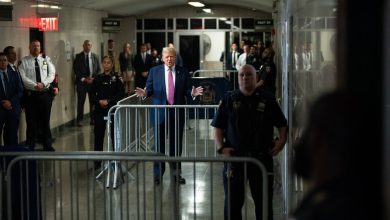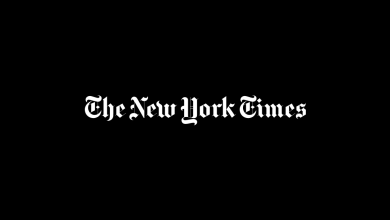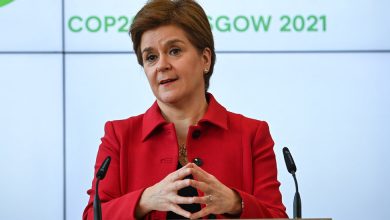President Biden will keep Jerome Powell as Fed chair, resisting political pressure for a shake-up.

President Biden will renominate Jerome H. Powell, the Federal Reserve chair, to another four-year term — ensuring policy continuity at a moment of rapid inflation and vast economic uncertainty but potentially angering progressive Democrats who had been agitating for a change in leadership.
The much-awaited decision was a return to tradition in which the central bank’s top official isreappointed regardless of partisan identity — a norm bucked by former President Donald J. Trump, who appointed Mr. Powell instead of renominating Janet L. Yellen. The stakes in the choice are unusually high.
Inflation has picked up sharply this year, with consumer prices increasing at the fastest pace in more than three decades in the year through October. The central bank is tasked with keeping consumer prices stable while striving for maximum employment, and striking that balance could require difficult policy choices in the months ahead.
While taming inflation falls to the Fed, Mr. Biden has been suffering politically as prices rise for food, gas and airplane tickets. The president has repeatedly tried to reassure Americans that his economic policies will ultimately calm inflation, a message he is expected to repeat during remarks on Tuesday.
Mr. Biden, who will also nominate Lael Brainard, a governor, to serve as the Fed’s vice chair, said he was confident that both Mr. Powell and Ms. Brainard would work to lower prices and keep the economic recovery on track.
“I’m confident that Chair Powell and Dr. Brainard’s focus on keeping inflation low, prices stable and delivering full employment will make our economy stronger than ever before,” Mr. Biden said in a statement on Monday.
Mr. Powell’s reappointment suggests that the White House, which has a chance to fully reshape the Fed, is not aiming to completely overhaul the institution. The Biden administration already has one vacant governor role to fill, and two more seats will open early next year, giving Mr. Biden room to appoint at least three of seven governors. The president must also fill several leadership roles, including the Fed’s vice chair for supervision, a powerful position given its influence on bank oversight.
Mr. Biden has been under pressure from progressives and moderate Democrats to pick a diverse slate of leaders for the Fed who would prioritize tough bank regulation and do what they could to address climate change risks in the financial system.
Mr. Powell has come under criticism for being slow to address climate change and for backing measures that have chipped away at some post-crisis financial rules. In his statement on Monday, Mr. Biden said that he expected Mr. Powell, along with Ms. Brainard, to “address the economic risks posed by climate change and stay ahead of emerging risks in our financial system.”
Whether that will be enough to appease Mr. Powell’s critics remains to be seen. The Fed chair’s tenure has been criticized by some progressives, including Senator Elizabeth Warren of Massachusetts, who has called Mr. Powell “a dangerous man.” On Friday, Senator Sheldon Whitehouse of Rhode Island and Senator Jeff Merkley of Oregon released a statement opposing Mr. Powell’s reappointment. But Republicans, who supported Mr. Powell when he was nominated as chair by Mr. Trump, are likely to vote to confirm him again.
Moments after the nomination was made public, Senator Patrick J. Toomey, Republican of Pennsylvania, released a statement saying he would support Mr. Powell’s nomination.
Mr. Biden’s decision was influenced by a complicated economic moment. Inflation has jumped higher thanks to booming consumer demand, tangled supply lines and labor shortages that have helped to push the cost of used cars, couches and even food and rent higher. Yet millions of workers are missing from the labor market compared with before the pandemic. As a result, the Fed may be left balancing its two key goals as it charts its future policy path.
So far, the central bank has decided to slow its large bond-purchase program, a first step toward withdrawing monetary policy support that will leave it more nimble to raise interest rates next year if reigning in the economy becomes necessary.
The federal funds rate has been set to near-zero since March 2020, keeping many types of borrowing cheap and helping to fuel home and car purchases and other types of demand that in turn set the stage for strong hiring. Raising it could cool off growth and weaken inflation.
Yet trying to slow price gains would come at a cost. Workers are still trickling back after severe job losses at the onset of the pandemic, and the Fed is hoping to give the job market more space and time to heal. That’s especially true because continued waves of infection may be keeping many people from searching for work, either out of health concerns or because they lack child care.
Navigating the next steps will be no easy task.
Mr. Powell is a Republican who was first appointed by President Barack Obama as a Fed governor, then elevated to chair by Mr. Trump, whose decision to replace Ms. Yellen as Fed chair upended a longstanding tradition in which presidents reappoint Fed chairs of the opposite party who had done a good job.
Ahead of the White House’s decision, some economists had argued that it would be valuable to restart that pattern. Doing so, the logic went, would signal that the Fed is a technocratic body that sets prudent economic policy without taking into account political considerations.
Plus, Mr. Powell is often lauded for his track record as chair, which has seen the central bank pursuing full employment with vigor. The Fed guided the economy through the start of the coronavirus pandemic, unveiling a series of market rescue programs that kept Wall Street functioning and averted a financial disaster that could have cascaded through the economy.
But Mr. Powell had faced opposition from some progressive Democrats, first over his history of voting for changes that made financial regulation looser for banks, and later because of an ethics scandal that took place while he was overseeing the central bank. Two of the Fed’s 12 regional presidents made significant financial trades for their private accounts in 2020, when the Fed was actively rescuing many markets from pandemic fallout.
Mr. Powell has said that he defers to the person Congress has confirmed to the bank supervision role to set the agenda when it comes to regulatory matters. The Fed has unveiled new ethics rules since news of last year’s financial activity broke.
Presidential nominees to the Fed Board and Fed leadership positions must first pass through a Senate committee, then through a vote on the Senate floor.



